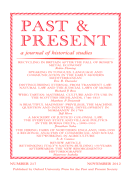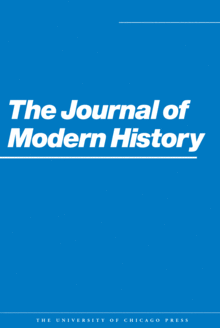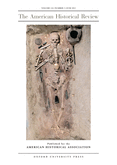Does nationalism necessarily mean hatred and violence?
This book shows that the answer is no.
Actually, nationalism could act as a movement explicitly against xenophobia and intolerance. Nationalists Who Feared the Nation studies a group of community leaders and writers in Venice, Trieste, and Dalmatia during the 1830s, 40s, and 50s who proposed the creation of a multinational zone surrounding the Adriatic Sea. At the time, the lands of the Adriatic formed a maritime community whose people spoke different languages and practiced different faiths but identified themselves as belonging to a single region of the Habsburg Empire. While these activists hoped that nationhood could be used to strengthen community bonds, they also feared nationalism's homogenizing effects and its potential for violence. This book demonstrates that generations in the distant past recognized much of what plagues us today and worked to avoid it. They saw nationalism's tendency to create homogeneous, single-language, -religion, or -ethnicity nations and they fought explicitly against this. Moreover, in treating the Adriatic lands as one unit, this book serves as a correction to "national" histories that impose our modern view of nationhood on what was a multinational region and have thus hidden much of the history of those people who lived there.
Awards
Book prize from
Center for Austrian Studies
(2014)
Citation reads:
"striking for the originality of its sources, the clarity of its argument, and its elegant and lucid prose."
Honorable Mention from
Southern Historical Association’s
Smith Book Award
(2012)
Citation reads:
"Tightly analyzed, engagingly written, based on a wealth of primary and secondary sources, and path-breaking in its unique perspective on nationalist movements in the first half of the 19th century."
Finalist for the
Laura Shannon Book Prize
in European Studies
(2015)
Alison Frank Johnson
Harvard University
author of
Oil Empire:
Visions of Prosperity in Austrian Galicia
"Dominique Reill presents an extremely sophisticated and subtle theoretical argument about the relationship between nationalism and pluralism, and does so in a way that is both novel and clear. One need not be independently interested in the Adriatic (as I, admittedly, happen to be) in order to recognize the importance of this manuscript's contribution to the study of nationalism."
Early Praise
Reception of
Nationalists Who Feared the Nation:
Isa Blumi's review for H-Net (review here)
"Reill's impressive first book exemplifies the best of the historian's craft. As she diligently scours still neglected regional archives throughout the northern Adriatic, the book interweaves jewels of insight into a finely crafted narrative ... this complex book is as much engaging as revelatory. In this respect, I found myself thoroughly drawn to this study meshed together by a talented historian who uses disparate sources to make compelling arguments about an often-neglected part of the Habsburg Empire. . . . Reill is an excellent scholar whose work is both invigorating and original. I, for one, cannot wait for her next book." --
Maura Hametz's review for Journal of Modern Italian Studies (review here)
"Through the analysis of an impressive array of sources, Reill deftly demonstrates the fluidity of nationalist ideas and the limitations of concentrating on aspects of the development of the 'one nation, one state' model that emerged as predominant in the latter half of the nineteenth century . . . Reill's greatest contribution lies in her ability to uncover the lost voices of the nineteenth-century Adriatic."
Borut Klabjan's review for Austrian History Yearbook (review here)
"This lucid book offers readers a topic that has not emerged so far in historiography. The author dedicates special attention to going beyond the common cliches and usual, stereotyped mental patterns that are often present not only in individual national and nationalist narration, but also in historiographical production. By explaining Adriatic multinationalism, Reill's book has, as any good historiographical work does, opened new questions.... of wide research in multiple languages, and with a clear vision and vivid pen, Reill has written an essential account of nationalism and multinationalism."
Maurizio Isabella's review for Past and Present (review here)
"The recent publication of Dominique Reill's monograph on Adriatic nationalism has served to complicate still further our understanding of the cultural definition of the nation in the Risorgimento. In this tightly focused and elegantly written book Reill discusses the concept of nation developed by a group of Dalmatian intellectuals, whose acknowledged leader and source of inspiration was the famous Niccolo Tommaseo."
Filip Erdeljac's review in Nationalities Papers (review here)
"In Nationalists Who Feared the Nation, Dominique Kirchner Reill seeks to 'recover the forgotten realities and lost possibilities of nationalism' by questioning the commonly held scholarly understanding of nationalism as a concept intended to enforce homogeneity and eliminate, through a variety of means, diversity . . . [Reill's] book has recovered the lost voices of Adriatic multi-nationalists who proposed alternative and less violent paths towards nationhood, thus rescuing them from the embrace of oversimplified nationalist narratives in which they figure as some of the first fighters for mono-national causes."
John Davis's review for English Historical Review (review here)
"Bridging the two shores of the Adriatic, [Reill's] study establishes a comparative framework within which she relentlessly questions what the nation meant to nationalist thinkers in these years, how and why those ideas differed, and how and why they evolved. This beautifully written and deeply researched study broadens our understanding of the Risorgimento and offers an essential point of reference for anyone interested in the diversity of European nationalism and nationalist thought in the first half of the nineteenth century." --
Nick Miller's review for Journal of Modern History (review here)
"erudite, full of clear explications of often-complicated ideas, and the fruit of many years' labor in multiple languages and many archives... situating the region and its history in a broader European context."
Nicole Phelps's review for Journal of World History (review here)
"well written and succinct, and would be appropriate not only for specialists in the field but also for upper-level undergraduates studying the development of nationalist thought."
James Bjork's review for American Historical Review (review here)
"The book is an impressive example of socially embedded intellectual history . . . An impressive example of how historians can productively balance empathy and critique, and it is a welcome addition to the scholarship on nationalism in modern Europe."
Vanni D'Alessio's review for Il miestere di storico (review here)
"An impassioned book, well written and well documented, making use of wide-ranging literature and both Italian and Croatian archival sources."
P. W. Knoll's review for CHOICE (review here)
"Set against the backdrop of 19th-century nationalism, this insightful and deeply researched study examines the careers and programs of six largely forgotten individuals who sought multinational solutions for the areas of Venice, Trieste, and Habsburg Dalmatia. . . . Highly Recommended."













